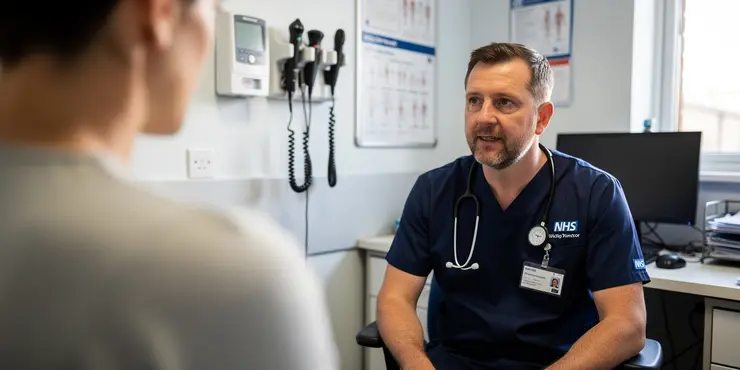
Find Help
More Items From Ergsy search
-
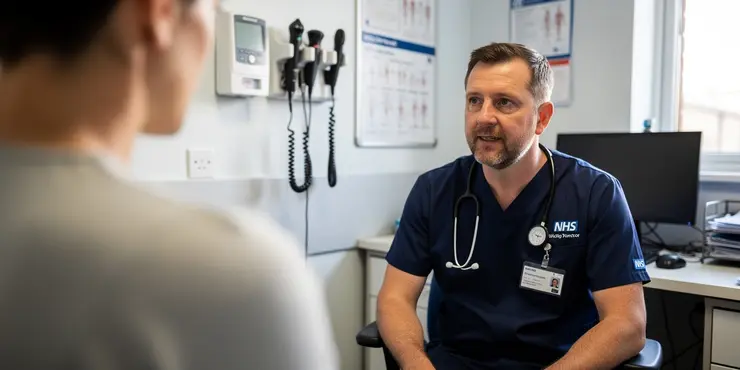
How is appendicitis different from other causes of abdominal pain?
Relevance: 100%
-

Stomach ache and abdominal pain
Relevance: 83%
-
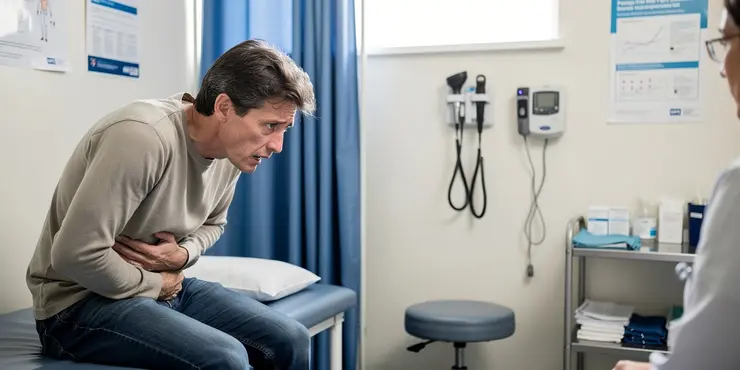
Where is the pain located when you have appendicitis?
Relevance: 78%
-
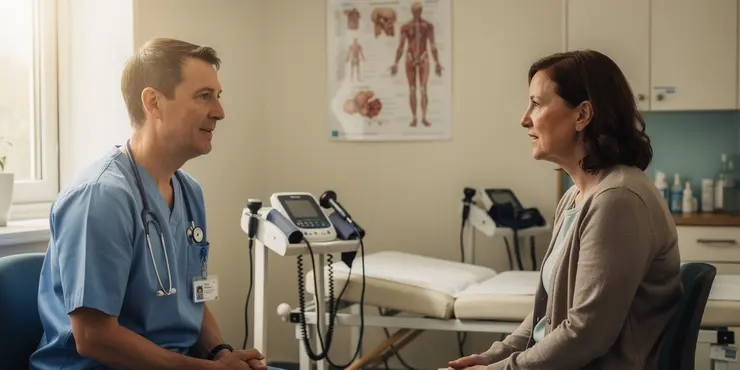
Is appendicitis hereditary?
Relevance: 75%
-
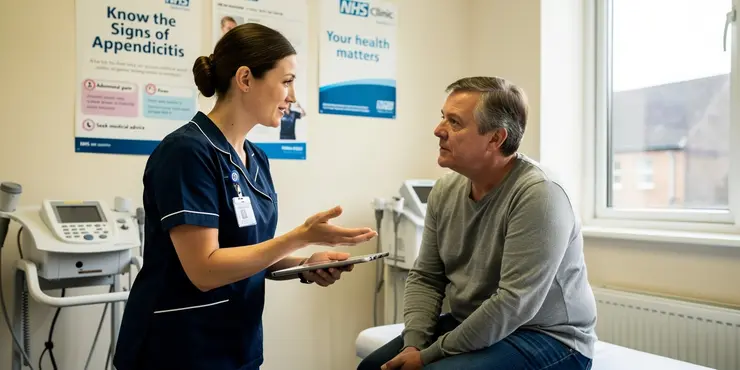
What are the common symptoms of appendicitis?
Relevance: 74%
-
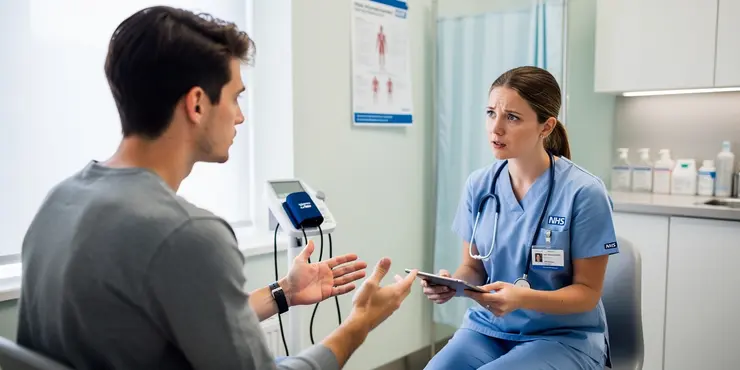
What is Appendicitis?
Relevance: 72%
-
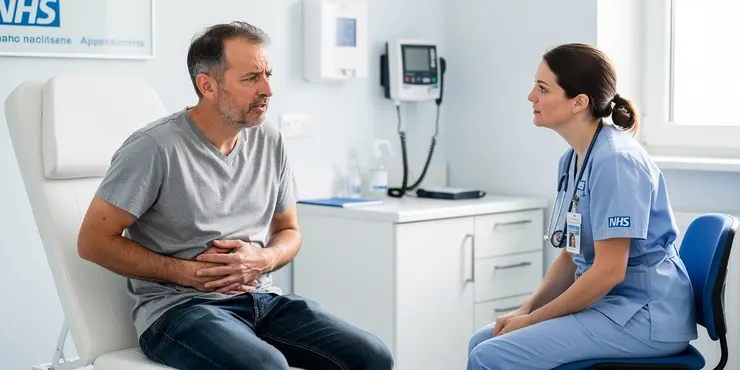
What are the potential complications of appendicitis?
Relevance: 68%
-

What is the treatment for appendicitis?
Relevance: 66%
-
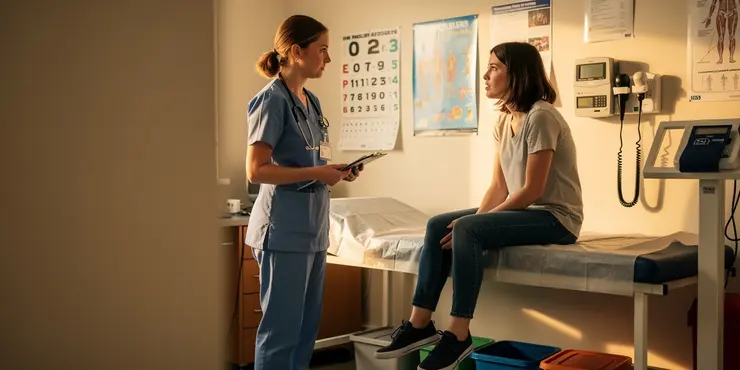
How is appendicitis diagnosed?
Relevance: 65%
-
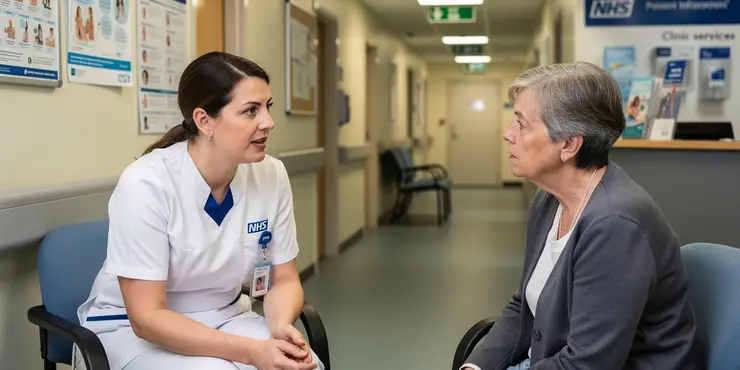
Can appendicitis occur more than once?
Relevance: 65%
-
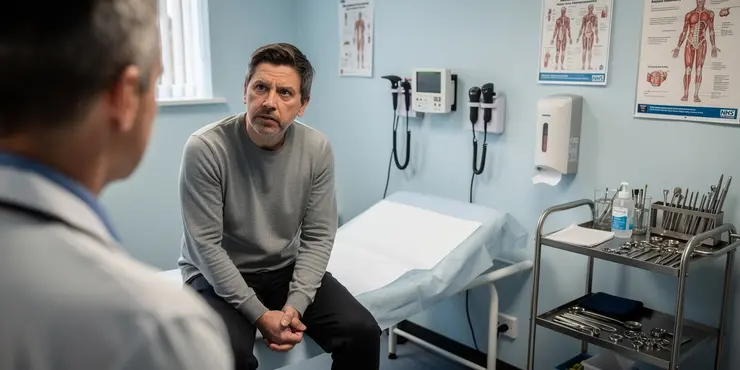
What happens if appendicitis is left untreated?
Relevance: 63%
-

What causes appendicitis?
Relevance: 62%
-
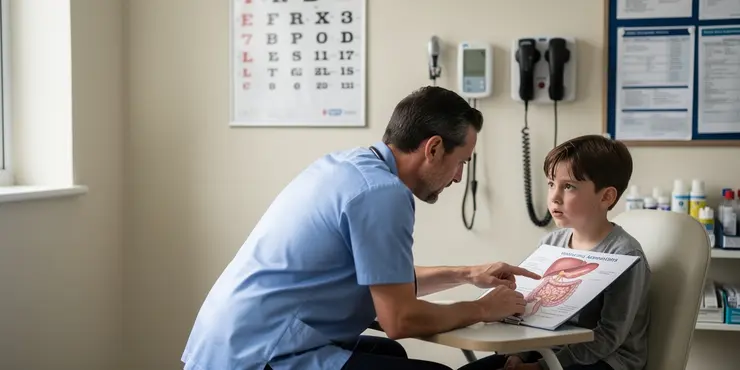
What is the likelihood of needing surgery for suspected appendicitis?
Relevance: 61%
-

Can appendicitis go away on its own?
Relevance: 60%
-
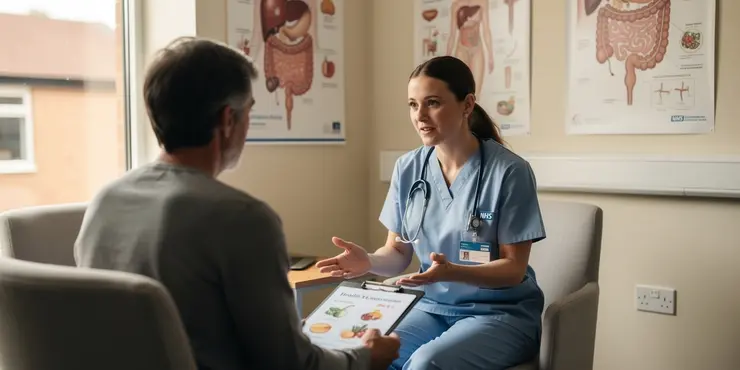
Can diet or lifestyle changes prevent appendicitis?
Relevance: 60%
-
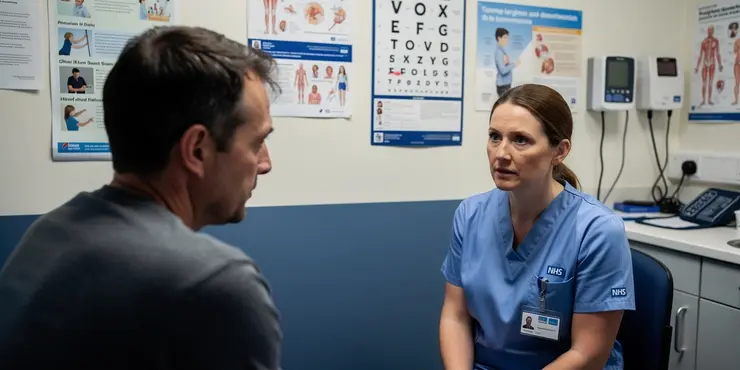
How soon should you see a doctor if you suspect appendicitis?
Relevance: 57%
-
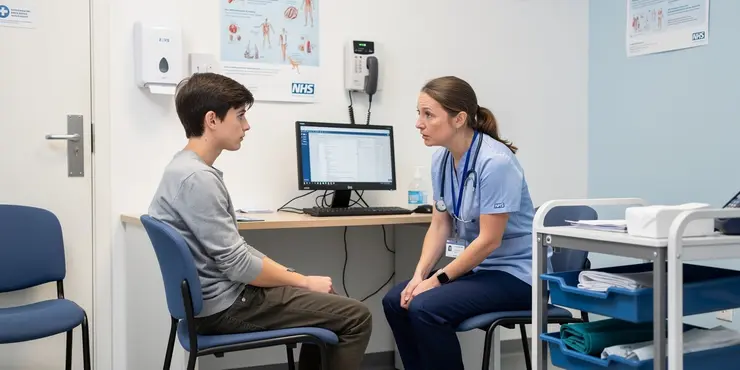
Is appendicitis common in any particular age group?
Relevance: 54%
-
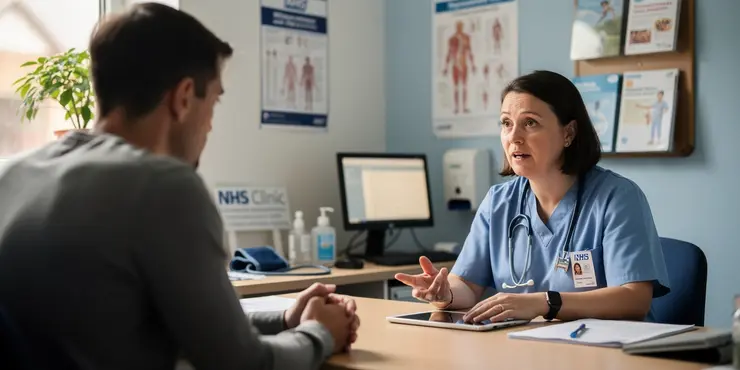
Can appendicitis be treated with antibiotics?
Relevance: 51%
-
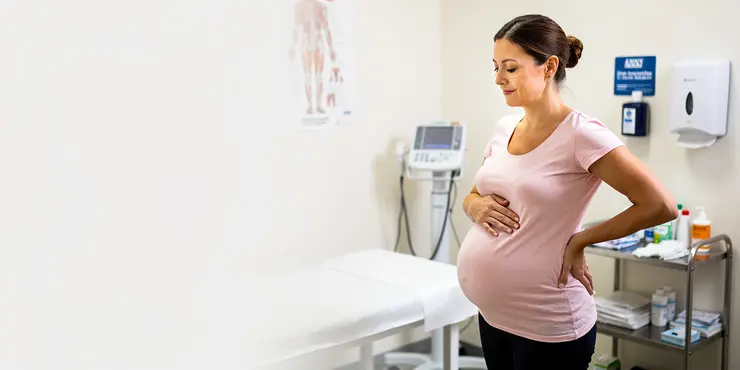
Can I do abdominal exercises during pregnancy?
Relevance: 44%
-
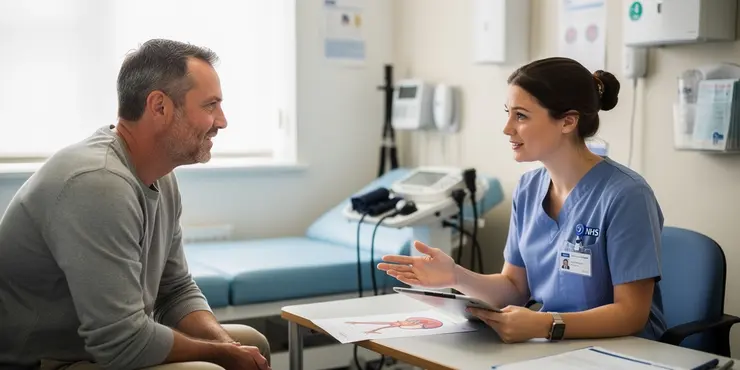
AAA (Abdominal aortic aneurysm) screening
Relevance: 37%
-
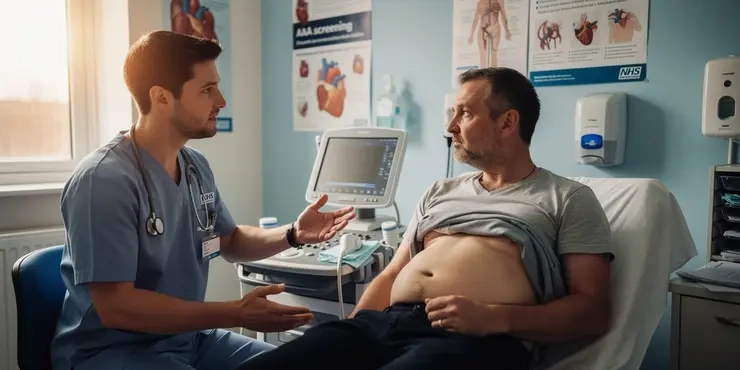
NHS Abdominal Aortic Aneurysm (AAA) Screening
Relevance: 36%
-
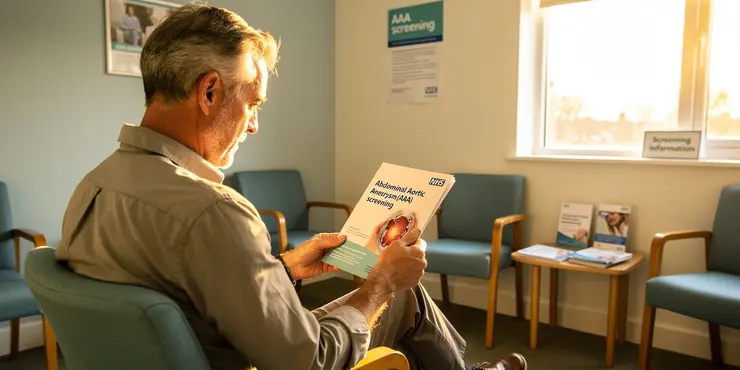
Abdominal Aortic Aneurysm (AAA) screening programme
Relevance: 36%
-
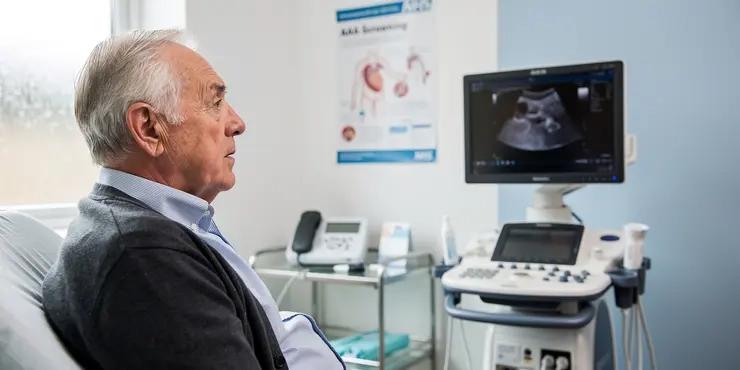
Eddie's Story - Abdominal Aortic Aneurysm (AAA) Screening
Relevance: 35%
-

Can you live without an appendix?
Relevance: 35%
-
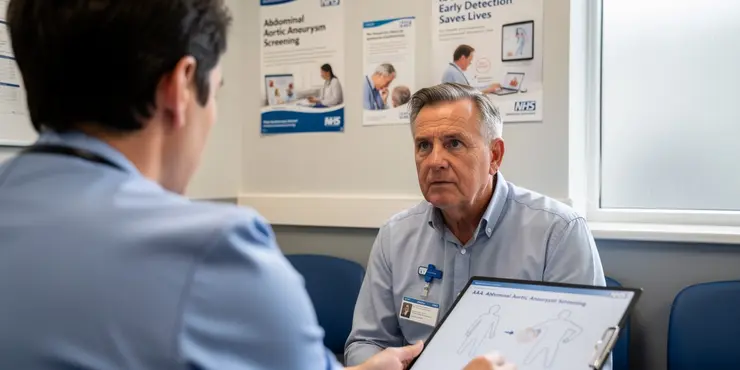
Your abdominal aortic aneurysm (AAA) screening appointment
Relevance: 34%
-

How can I manage pain after a C-section?
Relevance: 33%
-
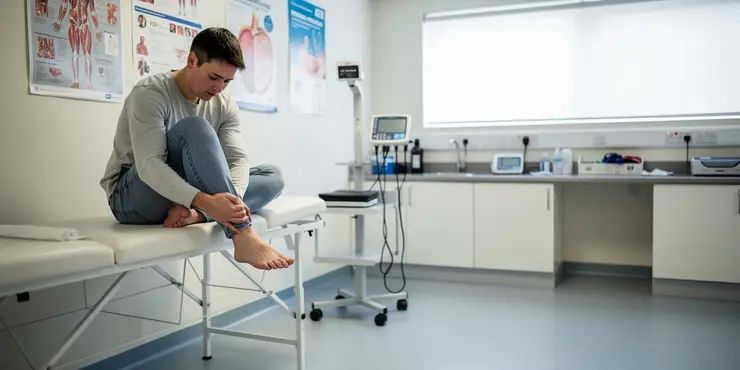
Foot Pain
Relevance: 31%
-

Is impetigo painful?
Relevance: 31%
-

Is a facelift painful?
Relevance: 31%
-
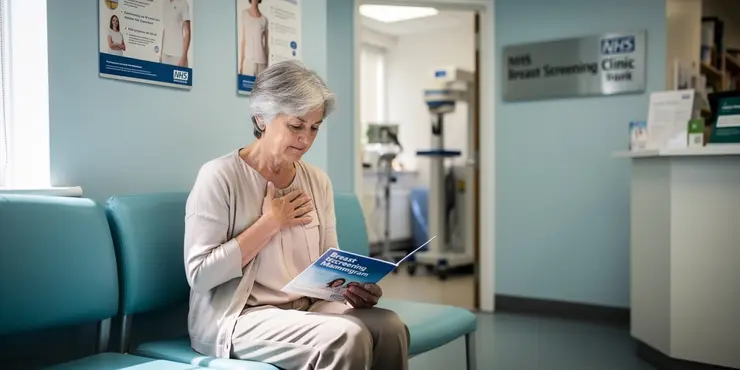
Is a mammogram painful?
Relevance: 31%
-

Period pain (dysmenorrhoea) - BSL
Relevance: 30%
-
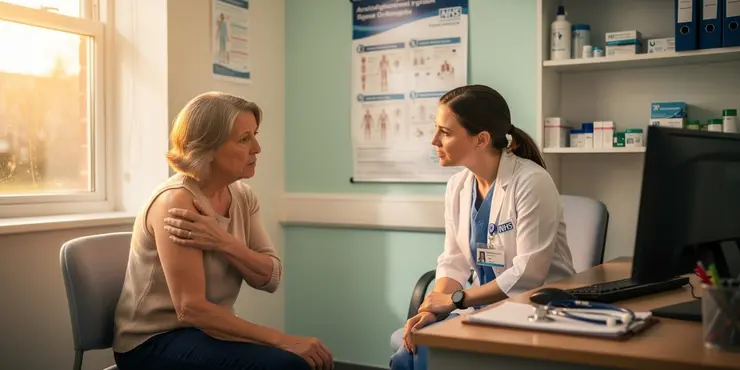
Shoulder pain | NHS
Relevance: 30%
-

Shoulder pain | NHS
Relevance: 30%
-
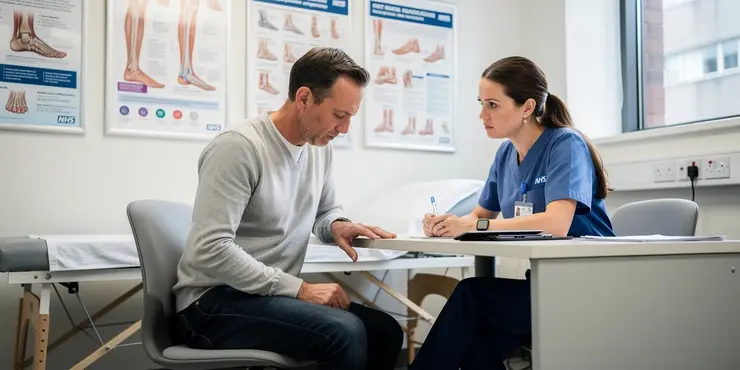
Heel pain | NHS
Relevance: 29%
-

Survivor of an Abdominal Aortic Aneurysm rupture appeals for men to take up NHS Screening Programme.
Relevance: 29%
-

How to deal with period pain | NHS
Relevance: 29%
-

Pilates for back pain: Seated waist twist | NHS
Relevance: 29%
-
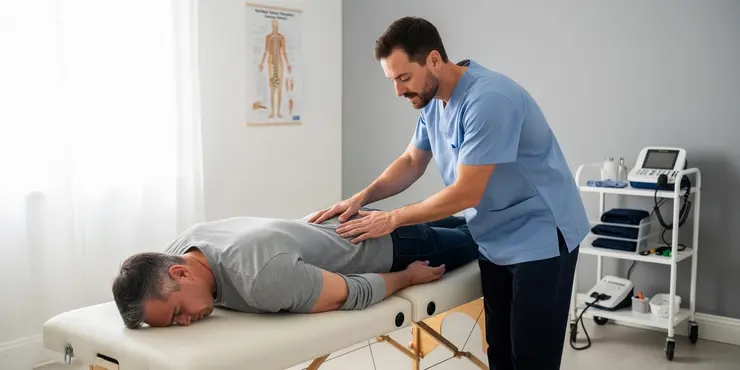
Are chiropractic treatments painful?
Relevance: 28%
-
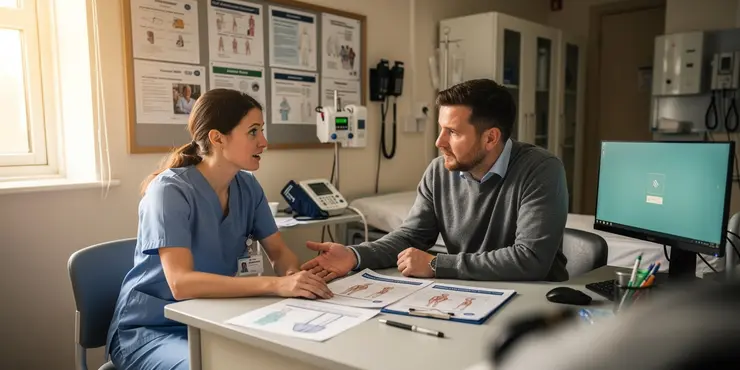
Mechanical Lower Back Pain
Relevance: 28%
-
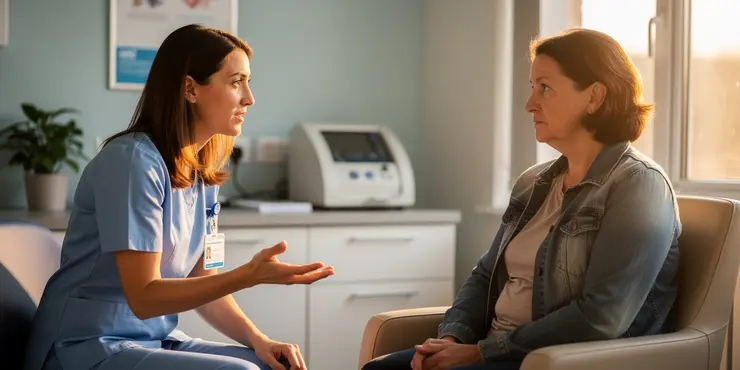
Will I feel pain during the procedure?
Relevance: 28%
Introduction
Abdominal pain can be alarming and is a common medical complaint. It can arise from various causes, ranging from minor, temporary issues to serious conditions requiring urgent medical attention. Among these, appendicitis is a notable cause that distinguishes itself in several ways from other sources of abdominal pain. Understanding the unique characteristics of appendicitis can aid in swift recognition and management.
What is Appendicitis?
Appendicitis is the inflammation of the appendix, a small pouch attached to the large intestine. If untreated, an inflamed appendix can rupture, leading to severe complications such as peritonitis and sepsis. It usually requires prompt surgical removal of the appendix, known as an appendectomy. Appendicitis typically presents with specific abdominal pain and other distinct symptoms.
Characteristics of Appendicitis Pain
Appendicitis pain often begins as a dull ache near the navel, intensifying and migrating to the lower right abdomen. This progression is crucial in distinguishing appendicitis from other causes of abdominal pain. The pain usually becomes sharper and more severe over time, and movement, coughing, or pressing on the area can exacerbate it. This characteristic migration and localized intensity in the right lower quadrant is a classical sign that sets appendicitis apart.
Associated Symptoms
Beyond pain, appendicitis is frequently accompanied by other symptoms that contribute to its diagnosis. Patients may experience nausea, vomiting, loss of appetite, and fever. These symptoms can overlap with other conditions but, in conjunction with the specific nature of the pain, they contribute to identifying appendicitis. Notably, gastrointestinal disturbances such as diarrhea or constipation can also occur, adding to its complex symptom profile.
How It Differs from Other Abdominal Pain Causes
While other causes of abdominal pain such as gastroenteritis, urinary tract infections, or irritable bowel syndrome can exhibit similar symptoms, they typically present differently. For example, gastroenteritis often involves widespread abdominal cramps and diarrhea, whereas appendicitis pain localizes in a specific region. Irritable bowel syndrome, although painful, is usually chronic with a pattern of relief following bowel movements, unlike the escalating pain of appendicitis.
Moreover, conditions like urinary tract infections may present with lower abdominal pain, but are often accompanied by urinary symptoms such as burning sensation or frequent urination, which are absent in appendicitis.
Conclusion
Recognizing the specific features of appendicitis is vital for timely medical intervention. Its sharp, migrating pain combined with systemic symptoms like fever and gastrointestinal disturbances make it distinguishable from other causes of abdominal pain. Understanding these differences allows for better awareness and prompt action, which is essential in preventing complications and ensuring effective treatment.
Introduction
Belly pain can be scary and is a common reason people see a doctor. There are many reasons for belly pain. Some are not serious and go away quickly. Others need a doctor's help right away. Appendicitis is one reason for belly pain that is different and more serious. It is important to know what makes appendicitis different so you can get help fast.
What is Appendicitis?
Appendicitis means your appendix is swollen and sore. The appendix is a small part inside your tummy, near the big intestine. If you don't treat it, the appendix can burst. This is very serious and needs help from a doctor. Usually, you need surgery to take out the appendix. This surgery is called an appendectomy. Appendicitis brings belly pain and other signs that are easy to spot.
How Does Appendicitis Pain Feel?
Appendicitis pain usually starts around the belly button. It feels like a dull ache. Then the pain moves to the lower right side of the belly. The pain gets sharper and worse with time. If you move, cough, or press on the area, it hurts more. This kind of pain is a key sign of appendicitis.
Other Signs of Appendicitis
Besides pain, there are other signs that help doctors know it's appendicitis. You might feel sick, throw up, not want to eat, or have a fever. Sometimes, you might have diarrhea or find it hard to poop. All these signs help doctors figure out if you have appendicitis.
How Is It Different from Other Belly Pain?
Other belly problems can cause pain, but they are not the same as appendicitis. For example, with a stomach bug (gastroenteritis), you might have cramps all over your belly and diarrhea. With appendicitis, the pain stays in one spot on the right side. Irritable bowel syndrome (IBS) can also hurt, but the pain gets better after going to the bathroom. Appendicitis pain keeps getting worse. A urinary tract infection (UTI) might hurt in the lower belly, but it also makes peeing hurt, which doesn’t happen with appendicitis.
Conclusion
Knowing the signs of appendicitis is very important. The sharp pain that moves in your belly, along with fever and feeling sick, makes it different from other types of belly pain. Understanding this helps you get quick medical help, which prevents serious problems and helps you feel better fast. If you have trouble reading, using audiobook tools or asking someone to read with you can be helpful.
Frequently Asked Questions
What is appendicitis?
Appendicitis is an inflammation of the appendix, a small tube-like structure attached to the large intestine.
What are the common symptoms of appendicitis?
Symptoms include sharp pain in the lower right abdomen, fever, nausea, and loss of appetite.
How does appendicitis pain differ from other abdominal pain?
Appendicitis pain typically starts near the belly button and moves to the lower right abdomen.
What triggers the pain associated with appendicitis?
The pain is caused by inflammation and potential infection of the appendix.
Can appendicitis pain come and go?
Appendicitis pain is usually constant and progressively worsens.
How quickly does appendicitis pain develop?
The pain often develops over a period of 24 to 48 hours.
Is location a key factor in distinguishing appendicitis?
Yes, pain specifically localized to the lower right abdomen is a key sign of appendicitis.
What tests are used to diagnose appendicitis?
Doctors may use imaging tests such as an ultrasound or CT scan to diagnose appendicitis.
Can appendicitis cause referred pain?
Referred pain is less common, but initially, pain may be felt around the belly button.
What are other causes of abdominal pain?
Other causes include gastritis, ulcers, gallstones, and intestinal obstructions.
Can appendicitis resolve on its own?
Appendicitis generally requires surgical intervention, as it is unlikely to resolve without treatment.
What happens if appendicitis is untreated?
If untreated, it can lead to a ruptured appendix and severe complications.
Are there any risk factors for appendicitis?
Risk factors may include a family history of appendicitis and certain infections.
What is rebound tenderness and is it a sign of appendicitis?
Rebound tenderness is pain upon releasing pressure in the abdomen and can indicate appendicitis.
Can dietary factors cause appendicitis?
While the exact cause is not clear, some believe low-fiber diets might contribute to the risk.
Is fever always present with appendicitis?
While common, a fever is not always present in all cases of appendicitis.
How is appendicitis treated?
Appendicitis is usually treated by removing the appendix in a procedure called an appendectomy.
Are there non-surgical treatments for appendicitis?
In some cases, antibiotics may be used, but surgery is typically required for a full resolution.
What are typical complications of appendicitis?
Complications can include a ruptured appendix leading to peritonitis or an abscess.
How can one differentiate between appendicitis and kidney stones?
Kidney stone pain is often colicky, varies in intensity, and may radiate to the groin, unlike the persistent pain of appendicitis.
What is appendicitis?
Appendicitis is when your appendix gets sore and swollen. The appendix is a small tube in your belly. It can make you feel very sick. You might have pain in your belly and a fever.
If you feel these things, tell an adult. They can help you see a doctor. The doctor can give you medicine or do a small operation to make you better.
Tip: Picture books or videos can help you understand more. Ask someone to read with you or use apps that read aloud if you find reading hard.
Appendicitis means your appendix is swollen. The appendix is a small tube that is connected to your big intestine (where your poo comes out).
What signs show you might have appendicitis?
If your tummy hurts on the right side, you feel hot, feel sick, and don't want to eat, these could be signs of being ill.
What is different about appendicitis pain?
Appendicitis is when your appendix gets swollen and hurts. The pain is different from other tummy aches.
Here are some ways to tell if the pain might be from appendicitis:
- The pain often starts near your belly button and then moves to the lower right side of your tummy.
- The pain gets worse if you move, cough, or touch it.
- You might also feel sick, throw up, or have a fever.
If you have these pains, tell a grown-up. They can help you see a doctor.
Try using pictures or drawings to show where it hurts. This can help to explain your pain to others.
When you have a sore appendix, it usually hurts near your belly button. Then, the pain moves to the lower right side of your tummy.
If you have trouble reading, you can try using audiobooks or text-to-speech tools. They can read things out loud for you. Remember, asking for help is always okay!
What causes the pain from appendicitis?
Appendicitis happens when the appendix gets swollen and sore. This is why it hurts.
Signs you might have it:
- A strong pain on the lower right side of your belly.
- You might feel sick or want to throw up.
- Sometimes, it might hurt to walk or move.
If you feel this pain, tell a grown-up. A doctor can help you feel better.
Helpful tips:
- Ask questions if you don’t understand.
- Use pictures or videos to learn more.
The pain happens when the appendix gets swollen and might have germs.
Does appendix pain start and stop?
Sometimes, pain from an appendix problem can start and then stop. If you feel pain in your belly that goes away and then comes back, tell an adult or see a doctor. You can also use pictures or ask someone to help explain how you feel.
Pain from appendicitis doesn't go away and often gets worse over time.
How fast does the pain from appendicitis start?
Appendicitis pain can start suddenly and quickly get worse.
Here are some tips to help understand:
- Use Pictures: Look at pictures of where the appendix is in the body.
- Talk to Someone: It's okay to ask a doctor, nurse, or family member for help.
- Watch Videos: Videos can show how appendicitis pain feels.
The pain usually starts slowly and gets worse over 1 to 2 days.
Does where it hurts help doctors find out if it's appendicitis?
Yes, pain in the lower right side of your belly can be a sign of appendicitis.
If you have this pain, talk to a doctor. You can also ask a friend or family member to help. It is important to get help quickly.
You can try to relax by sitting in a comfortable chair or lying down with a pillow under your head. Taking deep breaths might also help calm you.
How do doctors find out if you have appendicitis?
Doctors use some tests to check if someone has appendicitis. This is a problem with a small part inside the tummy called the appendix.
Here are a few tests doctors might use:
- Physical exam: The doctor gently presses on your tummy to see where it hurts.
- Blood test: They take a little bit of your blood to check for signs of infection.
- Urine test: You might pee in a cup so doctors can see if there is another reason for the pain.
- Imaging tests: They might use a special camera, like an ultrasound or CT scan, to look inside your tummy.
If you are worried or confused, you can ask a friend or family member to help explain. It's also okay to talk to your doctor and ask lots of questions.
Doctors can use special pictures, like an ultrasound or CT scan, to see if someone has appendicitis.
Can appendix pain spread to other areas?
This kind of pain is called "referred pain." It doesn't happen often. But at first, you might feel the pain near your belly button.
What else can make your tummy hurt?
Other things that can make your tummy hurt are:
- Gastritis – this is when your stomach lining is sore.
- Ulcers – these are sores inside your stomach or the start of your intestine.
- Gallstones – these are hard lumps that can form in your gallbladder.
- Intestinal obstructions – this is when something blocks your intestine.
Can appendicitis get better by itself?
Appendicitis usually needs surgery to get better. It doesn't go away on its own.
What happens if you don't treat appendicitis?
If you have appendicitis and you do not see a doctor, it can be very dangerous.
The appendix can burst and make you very sick.
Go to a doctor if your tummy really hurts.
You can also ask someone you trust for help.
If you don't get help, your appendix might burst. This can make you very sick.
What can make appendicitis more likely?
Things that might make you more likely to get appendicitis are having family members who have had it and catching certain bugs that make you sick.
What is rebound tenderness and is it a sign of appendicitis?
Rebound tenderness is a type of stomach pain. It happens when you press on the belly and then let go. The pain gets worse when you stop pressing. This can be a sign of appendicitis. Appendicitis is when the appendix, a small part in the belly, gets swollen and sick. If you feel this kind of pain, it is important to see a doctor.
Tools like picture charts or videos can help explain this better. You can use these tools to understand more about the symptoms. If you do not feel well, ask a doctor or nurse for help.
Rebound tenderness means feeling pain when you press on the belly and then let go. If this happens, it might mean you have appendicitis, which is when a small part inside your belly is sick.
Can the food we eat cause appendicitis?
Appendicitis is when the appendix gets swollen and painful.
Doctors are not sure what causes it.
Some people think certain foods might be linked to it, but there is no strong proof.
If you have belly pain, tell an adult or see a doctor.
Here are some tools that can help you:
- Ask someone to read with you.
- Use pictures or drawings to understand better.
- Look up words you don't know in simple dictionaries.
We don't know the exact reason, but some people think that not eating enough fiber could be a problem.
Do you always have a fever with appendicitis?
Appendicitis is when your appendix gets swollen and sore. Some people with appendicitis get a fever, but not everyone does. It's important to see a doctor if you think you have appendicitis.
Things that can help:
- Ask someone to help you understand.
- Use pictures to learn more.
- Break down information into small bits.
It is normal for people with appendicitis to have a fever. But not everyone with appendicitis gets a fever.
How do doctors fix appendicitis?
When you have appendicitis, it means your appendix is sick.
Doctors will help you by taking out the appendix. This is called surgery.
You might need to stay in the hospital for a few days to get better.
Doctors give you medicine to stop pain and help you heal.
Ask someone you trust if you need help understanding.
Reading with a friend can be fun and helpful!
When someone has a problem with their appendix, doctors fix it by doing an operation. They take out the appendix. This is called an appendectomy.
Can you fix appendicitis without surgery?
Sometimes, medicine called antibiotics can help. But most of the time, surgery is needed to fix the problem completely.
What problems can happen with appendicitis?
Sometimes, bad things can happen if the appendix gets very sick. It might burst and make a big mess inside the tummy. This can cause a really bad infection. There might also be a pocket of pus, called an abscess.
To learn more or if you are unsure, it might be helpful to use tools like picture cards or storyboards. Talking to someone who knows a lot about this can also help.
How can you tell the difference between appendicitis and kidney stones?
It can be hard to know if you have appendicitis or kidney stones because they both hurt in your belly.
Here is a simple way to understand:
- Appendicitis: This hurts on the right side of your belly. It might make you feel sick and cause a fever.
- Kidney Stones: This pain can be in your lower back or side. You might feel it go to your tummy or even down to your groin.
If you think you have either problem, tell an adult you trust or a doctor. It is important to get help.
Here are some tools that can help:
- Use a picture chart of the body to point to where it hurts.
- Ask someone to go to the doctor with you to help explain your pain.
Kidney stones can hurt a lot. The pain comes and goes. It can feel strong and then get softer. Sometimes, the pain moves and you can feel it in your groin. This pain is different from the pain of appendicitis, which stays and doesn't go away.
Useful Links
This website offers general information and is not a substitute for professional advice.
Always seek guidance from qualified professionals.
If you have any medical concerns or need urgent help, contact a healthcare professional or emergency services immediately.
Some of this content was generated with AI assistance. We’ve done our best to keep it accurate, helpful, and human-friendly.
- Ergsy carfully checks the information in the videos we provide here.
- Videos shown by Youtube after a video has completed, have NOT been reviewed by ERGSY.
- To view, click the arrow in centre of video.
- Most of the videos you find here will have subtitles and/or closed captions available.
- You may need to turn these on, and choose your preferred language.
- Go to the video you'd like to watch.
- If closed captions (CC) are available, settings will be visible on the bottom right of the video player.
- To turn on Captions, click settings .
- To turn off Captions, click settings again.
More Items From Ergsy search
-

How is appendicitis different from other causes of abdominal pain?
Relevance: 100%
-

Stomach ache and abdominal pain
Relevance: 83%
-

Where is the pain located when you have appendicitis?
Relevance: 78%
-

Is appendicitis hereditary?
Relevance: 75%
-

What are the common symptoms of appendicitis?
Relevance: 74%
-

What is Appendicitis?
Relevance: 72%
-

What are the potential complications of appendicitis?
Relevance: 68%
-

What is the treatment for appendicitis?
Relevance: 66%
-

How is appendicitis diagnosed?
Relevance: 65%
-

Can appendicitis occur more than once?
Relevance: 65%
-

What happens if appendicitis is left untreated?
Relevance: 63%
-

What causes appendicitis?
Relevance: 62%
-

What is the likelihood of needing surgery for suspected appendicitis?
Relevance: 61%
-

Can appendicitis go away on its own?
Relevance: 60%
-

Can diet or lifestyle changes prevent appendicitis?
Relevance: 60%
-

How soon should you see a doctor if you suspect appendicitis?
Relevance: 57%
-

Is appendicitis common in any particular age group?
Relevance: 54%
-

Can appendicitis be treated with antibiotics?
Relevance: 51%
-

Can I do abdominal exercises during pregnancy?
Relevance: 44%
-

AAA (Abdominal aortic aneurysm) screening
Relevance: 37%
-

NHS Abdominal Aortic Aneurysm (AAA) Screening
Relevance: 36%
-

Abdominal Aortic Aneurysm (AAA) screening programme
Relevance: 36%
-

Eddie's Story - Abdominal Aortic Aneurysm (AAA) Screening
Relevance: 35%
-

Can you live without an appendix?
Relevance: 35%
-

Your abdominal aortic aneurysm (AAA) screening appointment
Relevance: 34%
-

How can I manage pain after a C-section?
Relevance: 33%
-

Foot Pain
Relevance: 31%
-

Is impetigo painful?
Relevance: 31%
-

Is a facelift painful?
Relevance: 31%
-

Is a mammogram painful?
Relevance: 31%
-

Period pain (dysmenorrhoea) - BSL
Relevance: 30%
-

Shoulder pain | NHS
Relevance: 30%
-

Shoulder pain | NHS
Relevance: 30%
-

Heel pain | NHS
Relevance: 29%
-

Survivor of an Abdominal Aortic Aneurysm rupture appeals for men to take up NHS Screening Programme.
Relevance: 29%
-

How to deal with period pain | NHS
Relevance: 29%
-

Pilates for back pain: Seated waist twist | NHS
Relevance: 29%
-

Are chiropractic treatments painful?
Relevance: 28%
-

Mechanical Lower Back Pain
Relevance: 28%
-

Will I feel pain during the procedure?
Relevance: 28%


